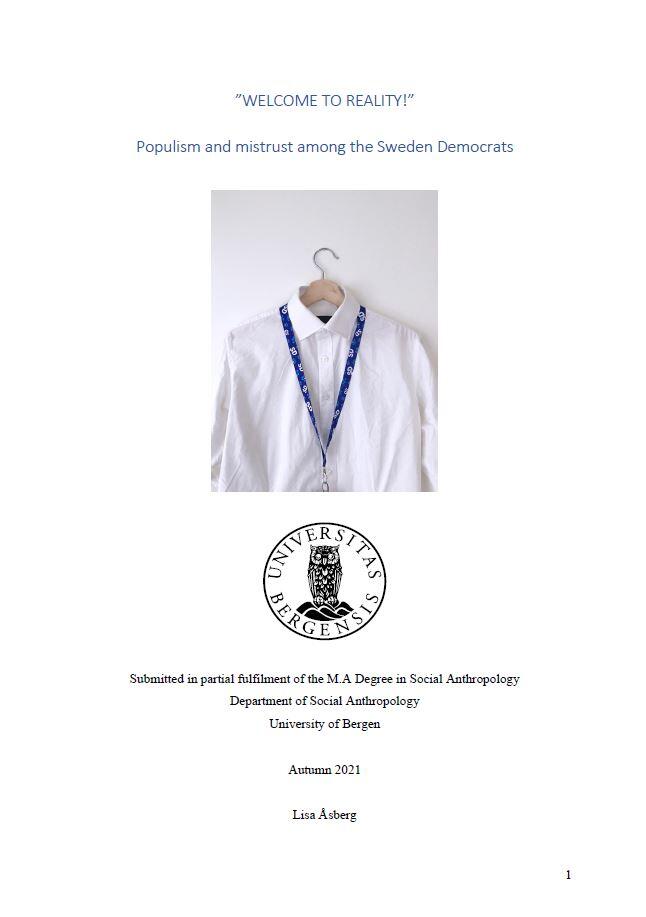"Welcome to reality!" Populism and mistrust among the Sweden Democrats
Main content
Master's thesis submitted at Department of Social Anthropology, autumn 2021.
By: Lisa Matilda Åsberg
Supervisor: Professor Tone Bringa
This thesis explores populist tendencies in political representatives from the Sweden Democrats (SD) in a Swedish city. Through ethnographic data and drawing on Ernesto Laclau’s theory on populist reason, I show how the SD constructs itself as “the people”, as opposed to “elites”, through chains of equivalences. United in having their demands denied by “elites”, my interlocutors were able to incorporate widely different demands into the party’s ideological composition. An internal, antagonistic frontier was established between “the people” and “elites” in the struggle over such demands. I argue that my interlocutors’ mistrust of “elites” – mainstream media, political representatives from other parties, as well as state and municipal institutions – made this antagonism between “the elites” and “the people” manifest. By examining my interlocutors’ ideas about “Swedishness” and national belonging, I also show that “the nation” – a key term in the SD’s political discourse, and which I analyse as an “empty signifier” – was crucial in shaping, and in turn being shaped by, the SD’s worldview. More or less every demand my interlocutors put forward was in some way centred around “the nation” and its protection, which in turn shaped subsequent demands. Finally, I argue that a neoliberal logic was also present in shaping my interlocutors’ worldviews: welfare chauvinism, while nationalist in my interlocutors’ rhetoric, was also, I suggest, underpinned by neoliberal ideas about “responsibilization”.
